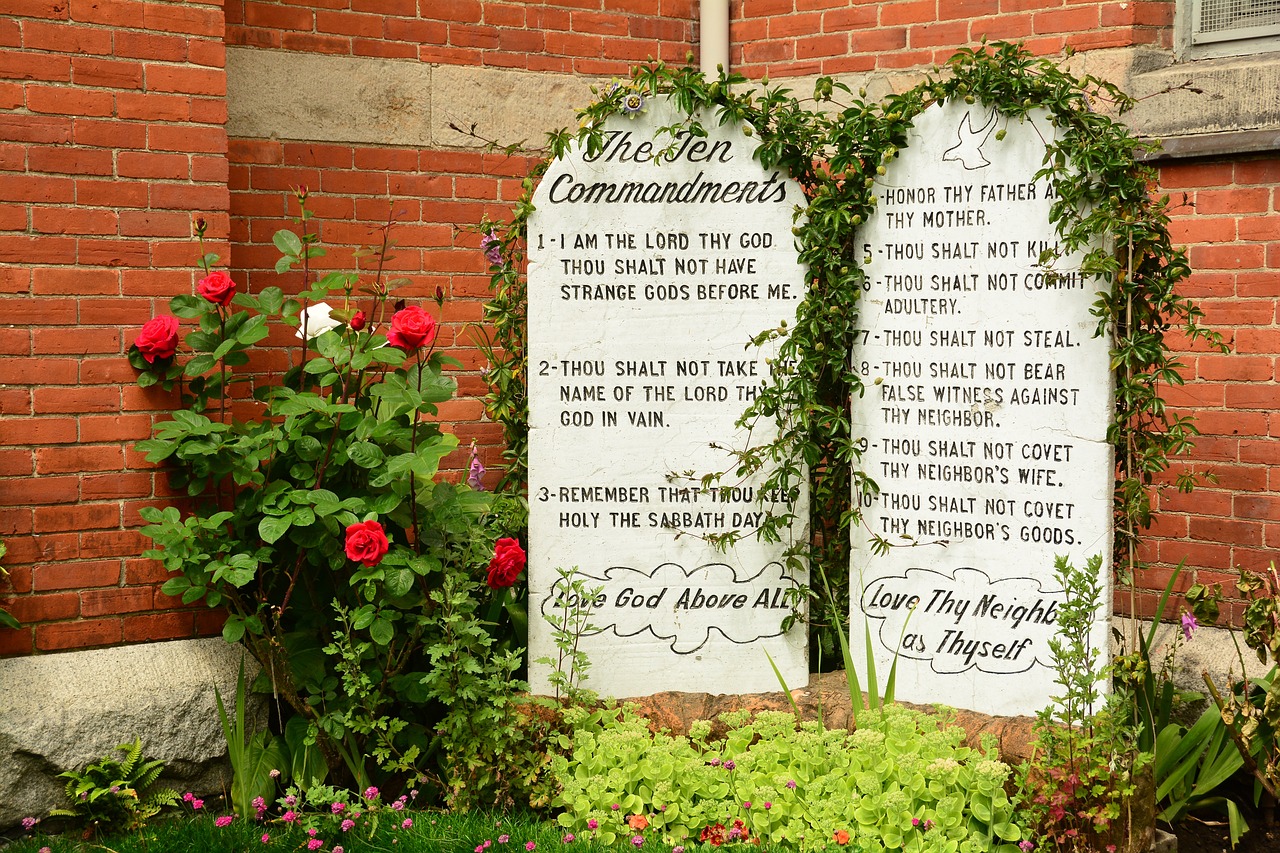Your cart is currently empty!

The Commandments: Divine Instructions for a Full Life
Throughout Scripture, God reveals His will through commandments, statutes, ordinances, judgments, and precepts. In the original Hebrew and Greek languages, the word commandment is closely related to terms such as law, word, instruction, and decree. Even when the word “commandment” does not appear literally, the entire Word of God must be received as divine authority.
“All Scripture is inspired by God and is useful for teaching, rebuking, correcting and training in righteousness.”
— 2 Timothy 3:16
That’s why we must not separate or minimize any part of what God has spoken. Every word that proceeds from His mouth is meant to guide us, correct us, and draw us closer to Him. His entire Word is our compass to live according to His perfect will.
Why Obey the Commandments?
The very fact that these instructions come from God should be reason enough to obey them. He is sovereign, holy, and just. He owes us no explanations—yet, in His mercy, He gave us His commandments as a loving guide for life.
“The commandments of the Lord are right, bringing joy to the heart. The commandment of the Lord is pure, enlightening the eyes.”
— Psalm 19:8
God’s commandments are not burdensome. They are blessings. They are an expression of His love, and when we obey them, our lives are aligned with His purpose.
Exodus 20: A Gift of Moral Clarity
In Exodus 20:1–17, we find one of the most foundational revelations in all of Scripture: the Ten Commandments, spoken directly by God to His people. They were not man-made ideas or optional guidelines. They were holy words given by the Creator, establishing a covenant of righteousness and moral clarity.
20 And God spoke all these words. 2 “I am the Lord your God, who brought you out of Egypt, out of the land of slavery. 3 “You shall have no other gods before me. 4 “You shall not make for yourself an image in the form of anything in heaven above or on the earth beneath or in the waters below.5 You shall not bow down to them or worship them; for I, the Lordyour God, am a jealous God, punishing the children for the sin of the parents to the third and fourth generation of those who hate me, 6 but showing love to a thousand generations of those who love me and keep my commandments. 7 “You shall not misuse the name of the Lord your God, for the Lord will not hold anyone guiltless who misuses his name. 8 “Remember the Sabbath day by keeping it holy. 9 Six days you shall labor and do all your work, 10 but the seventh day is a sabbath to the Lord your God. On it you shall not do any work, neither you, nor your son or daughter, nor your male or female servant, nor your animals, nor any foreigner residing in your towns. 11 For in six days the Lord made the heavens and the earth, the sea, and all that is in them, but he rested on the seventh day. Therefore the Lord blessed the Sabbath day and made it holy. 12 “Honor your father and your mother, so that you may live long in the land the Lord your God is giving you. 13 “You shall not murder. 14 “You shall not commit adultery. 15 “You shall not steal. 16 “You shall not give false testimony against your neighbor. 17 “You shall not covet your neighbor’s house. You shall not covet your neighbor’s wife, or his male or female servant, his ox or donkey, or anything that belongs to your neighbor.”
Each commandment reflects the character of God—His holiness, His justice, and His desire for His people to live in harmony with Him and with one another.
Are They Restrictive or Liberating?
Many people see the commandments as a set of restrictions, but the truth is that God did not give them to bind us—He gave them to set us free. They are designed not to steal joy, but to preserve life, relationships, and dignity.
“For this is the love of God, that we keep His commandments; and His commandments are not burdensome.”
— 1 John 5:3
God’s heart is not to weigh us down, but to show us the way to live in love—toward Him and toward others. Each commandment exists to protect us from the consequences of sin and lead us to peace, justice, and joy.
Obedience That Transforms the Heart
Obeying God’s commandments is not about checking boxes—it’s about loving Him and living out that love in our daily walk.
“If you love Me, keep My commandments.”
— John 14:15
When we live them sincerely, the commandments become tools that shape our character. They help us identify bad habits, correct harmful behaviors, and grow in holiness and humility.
“Blessed are those whose way is blameless, who walk in the law of the Lord.”
— Psalm 119:1
A Call to Live the Word
The commandments aren’t meant to sit on a page. God wants us to meditate on them, teach them, and write them on our hearts. They should not be forgotten words, but living truths that guide our steps every day.
“I have hidden Your word in my heart that I might not sin against You.”
— Psalm 119:11
“These commandments that I give you today are to be on your hearts. Impress them on your children…”
— Deuteronomy 6:6–7
Our Goal: To Please God
Living by God’s commandments is about walking in relationship with Him—not out of fear, but out of love. It is the response of a heart that is grateful for His salvation and deeply desires to honor Him.
While we know that we are saved by grace through faith, not by works (Ephesians 2:8–9), we also understand that true faith expresses itself in obedience.
“Do not merely listen to the word, and so deceive yourselves. Do what it says.”
— James 1:22
“Now all has been heard; here is the conclusion of the matter: Fear God and keep His commandments, for this is the duty of all mankind.”
— Ecclesiastes 12:13
Conclusion
The commandments are not a burden; they are a compass.
They are the language of God’s love, written as instruction.
Through them, God says: “This is the way—walk in it.”
And when we do, we discover peace, purpose, and a life worth living.
by
Tags:

Leave a Reply